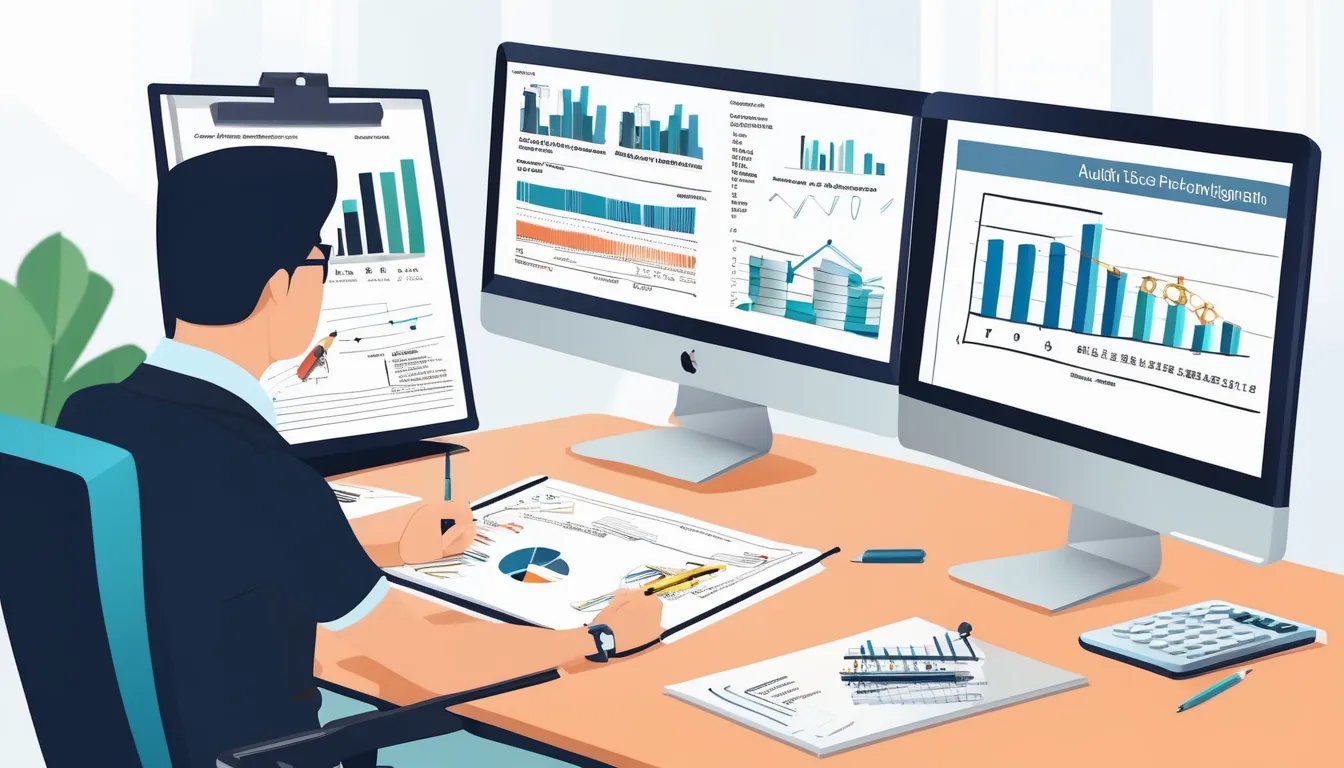In today’s fast-paced Singaporean market, you can’t underestimate the role of continuous auditing. It’s not just about compliance; it’s about staying ahead of the curve by identifying issues before they escalate. With the right tools and processes, you can enhance transparency and accountability within your organization, fostering a culture of trust among stakeholders. However, implementing such a system isn’t without its challenges. What factors should you consider to ensure effective continuous audit firm singapore ing in your business? Exploring this could reveal some critical insights.
Understanding Continuous Auditing
Continuous auditing is becoming an essential practice in today’s fast-paced financial landscape. You might wonder what it really means. Essentially, continuous auditing involves the ongoing evaluation of financial transactions and internal controls, rather than relying on periodic reviews. This approach enables you to identify discrepancies or issues in real-time, allowing for quicker corrective actions.
In a world where data flows rapidly, traditional audits may lag behind, leaving gaps in oversight. Continuous auditing addresses these gaps by utilizing technology, such as data analytics and automated processes, to keep you informed about your financial health. You’ll be able to monitor transactions as they occur, ensuring that compliance and risk management are always at the forefront.
Moreover, continuous auditing isn’t just about identifying problems; it also fosters a culture of accountability within your organization. By maintaining a constant focus on financial integrity, you encourage your team to uphold high standards.
As you embrace this practice, you’ll find that it not only enhances your financial oversight but also builds trust with stakeholders. Understanding continuous auditing is the first step toward navigating the complexities of today’s ever-evolving financial environment.
Benefits for Singaporean Businesses
In today’s competitive landscape, Singaporean businesses can significantly benefit from adopting continuous auditing practices. By implementing these practices, you’ll enhance your financial accuracy and decision-making capabilities. Continuous auditing provides real-time insights into your financial data, allowing you to quickly identify discrepancies and address issues before they escalate.
Additionally, you’ll improve compliance with regulatory standards, reducing the risk of penalties. This proactive approach not only safeguards your reputation but also builds trust with stakeholders. You’ll find that continuous auditing fosters a culture of transparency and accountability within your organization, leading to better performance overall.
Here’s a quick look at some key benefits:
| Benefit | Description | Impact on Business |
|---|---|---|
| Real-time insights | Access to ongoing financial data | Faster decision-making |
| Enhanced compliance | Meets regulatory requirements consistently | Reduced risk of penalties |
| Improved efficiency | Streamlined audit processes | Time and cost savings |
| Increased stakeholder trust | Builds confidence in your financial reporting | Stronger business relationships |
Challenges in Implementation
While the benefits of continuous auditing are clear, implementing these practices in Singaporean businesses isn’t without its challenges.
You’ll likely face several hurdles that can complicate the transition from traditional auditing methods to a more continuous approach. Understanding these challenges can help you prepare for a smoother implementation.
- Technology Integration: Adapting to new technologies can be daunting. It often requires significant investments in software and training for your staff, which can strain resources and disrupt current operations.
- Data Management: Continuous auditing relies heavily on real-time data collection and analysis. If your organization struggles with data quality or accessibility, it could hinder your ability to conduct effective audits, leading to unreliable results.
- Cultural Resistance: Shifting to continuous auditing may encounter resistance from employees accustomed to traditional methods.
You’ll need to foster a culture that values transparency and continuous improvement, which can take time and effort.
Regulatory Framework Overview
Navigating the regulatory landscape is crucial for businesses considering continuous auditing in Singapore. The country boasts a robust framework that underpins the auditing process, ensuring transparency and accountability. You’ll find that the key regulations guide how you implement continuous auditing practices effectively.
Here’s a quick overview of essential regulatory elements:
| Regulation | Purpose | Authority |
|---|---|---|
| Companies Act | Governs corporate governance and auditing | Accounting and Corporate Regulatory Authority (ACRA) |
| Singapore Financial Reporting Standards (SFRS) | Sets accounting standards for financial reporting | ACRA and the Institute of Singapore Chartered Accountants (ISCA) |
| Code of Corporate Governance | Provides guidelines for best practices | Monetary Authority of Singapore (MAS) |
| Data Protection Act | Protects personal data in auditing processes | Personal Data Protection Commission (PDPC) |
| International Auditing Standards | Ensures auditing quality and consistency | International Auditing and Assurance Standards Board (IAASB) |
Understanding these regulations will help you align your continuous auditing practices with compliance requirements. This awareness not only promotes ethical standards but also enhances your business’s credibility in Singapore’s dynamic market.
Future Trends and Innovations
As the regulatory framework evolves, continuous auditing in Singapore is set to embrace several future trends and innovations that can enhance efficiency and effectiveness.
You’ll find that these advancements won’t only streamline processes but also bolster compliance and risk management.
1. AI and Machine Learning: These technologies will automate data analysis, allowing auditors to focus on high-risk areas and provide deeper insights.
You’ll benefit from faster decision-making and improved accuracy in identifying anomalies.
2. Blockchain Technology: By utilizing blockchain, auditors can ensure data integrity and transparency.
This innovation allows for real-time tracking of transactions, making it easier to verify financial records and reduce fraud risk.
3. Integrated Audit Platforms: The rise of integrated platforms will enable seamless collaboration between auditors and clients.
You’ll experience enhanced communication, resulting in more efficient audits and quicker responses to regulatory changes.
Incorporating these trends into continuous auditing practices will empower you to stay ahead in Singapore’s dynamic market.
Conclusion
In Singapore’s fast-paced market, embracing continuous auditing is essential for your business’s success. By adopting real-time auditing practices, you not only enhance financial integrity and compliance but also boost accountability within your organization. While challenges exist, the benefits far outweigh them, helping you adapt quickly to market changes. As technology evolves, staying ahead with continuous auditing will ensure your business remains competitive and trustworthy in the eyes of stakeholders. Don’t wait—start your continuous auditing journey today!


